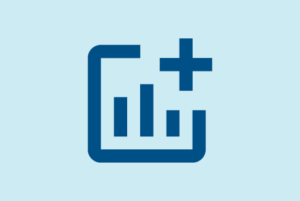On Jan. 8, the Governor released his 2021-22 state budget proposal – a $227.2 billion budget plan that provides funding for immediate COVID-19 response and relief efforts for many Californians impacted by the pandemic.
The state’s financial situation is better than anticipated, and the budget now projects the state will collect a $15 billion surplus in the next year. The budget dedicates billions to coronavirus relief efforts in health care, economic stimulus, education programs and includes important Medi-Cal program augmentations, as well as proposals to address health care affordability as the state continues to consider the cost of health care.
The Governor is asking the Legislature to act this month on a number of pressing issues, including funding for COVID-19 vaccinations and an extension of the state’s moratorium on evictions.
The budget proposes $300 million to speed up the distribution of COVID-19 vaccines throughout the state. Funds would be used to implement a state vaccine management system, boost the shipment and storage of the vaccine, and increase the state’s public awareness campaign about the vaccine
Highlights from the Governor’s budget that are related to health care include:
- Medi-Cal Caseload. Medi-Cal caseload is projected to increase 11.7% from 2020-21 to 2021-22, covering 15.6 million Californians. By January 2022, the caseload is projected to peak at 16.1 million due to the recession.
- Telehealth Flexibilities in Medi-Cal. The budget includes $94.8 million ($34 million General Fund) ongoing to expand and make permanent certain telehealth flexibilities authorized during COVID-19 for Medi-Cal providers, and to add remote patient monitoring as a new covered benefit, effective July 1. CHA expects the details of this proposal to be out by Feb. 1.
- Student Mental Health. The budget includes one-time funding of $400 million ($200 million General Fund), available over multiple years, for the Department of Health Care Services (DHCS) to implement an incentive program through Medi-Cal managed care plans, in coordination with county behavioral health departments and schools. This effort seeks to build infrastructure, partnerships, and capacity statewide to increase the number of students receiving preventive and early intervention behavioral health services from schools. Additionally, the budget includes a $25 million one-time Mental Health Services Fund to augment the Mental Health Student Services Act Partnership Grant Program. The budget also includes $25 million from Proposition 98 to fund partnerships with county behavioral health departments to support student mental health services.
- Further Delay of Suspensions. Last year’s budget assumed the suspension of a number of health and human services proposals, effective July 1, 2021, and Dec. 31, 2021. This includes Proposition 56 supplemental payments and in-home supportive services rates. The budget proposal for the coming year proposes to delay these suspensions by one year.
- California Advancing and Innovating Medi-Cal (CalAIM). This budget launches CalAIM, a broad delivery system and payment reform initiative. It builds upon the successes of waiver demonstration programs such as Whole Person Care, the Coordinated Care Initiative, Health Homes, and public hospital system delivery transformation. CalAIM proposes to provide a wider array of services and support for patients with complex and high needs. The budget includes $1.1 billion to implement CalAIM — effective Jan. 1, 2022, with funding growing over the following two years.
- Office of Health Care Affordability. The budget plan includes the establishment of an Office of Health Care Affordability. The budget builds on the Health Care Payment Database, which enables the Office of Statewide Health Planning and Development (OSHPD) to collect and analyze utilization and cost data.
The office will be charged with increasing transparency on cost and quality, developing cost targets for the health care industry, enforcing compliance through financial penalties, and filling gaps in market oversight of transactions that may adversely impact market competition, prices, quality, access, and the total cost of care. It will promote health care workforce stability and training needs, report quality performance and equity metrics on the entire health care system, advance payment models that reward high quality, cost-efficient care, and promote investments in primary care and behavioral health. This spring the administration will submit a proposal to recast OSHPD and the proposed Office of Health Care Affordability under the umbrella of the Department of Health Care Affordability and Infrastructure. - Health Information Exchange. The budget includes plans to use health information exchanges to receive and integrate health care data for all Californians, with the goal of requiring health plans, hospitals, medical groups, laboratories, and nursing facilities to participate in order to be a part of the Medi-Cal program.
- New Community Behavioral Health Infrastructure Funding. In recognition of insufficient community outpatient behavioral health treatment options in California, the Governor proposes providing $750 million in state general funds to counties (through competitive applications) over three years for DHCS to “invest in critical gaps across the community-based behavioral health continuum, including the addition of at least 5,000 beds, units or rooms” to expand capacity. DHCS indicates the resources would “provide a comprehensive continuum of services to address short-term crisis stabilization, acute needs, peer respite, and other clinically enriched longer-term treatment and rehabilitation opportunities for persons with behavioral health disorders, in the least restrictive and least costly setting.” Counties would be required to provide local matching funds.
- Master Plan for Aging. The budget allocates $25 million for the Master Plan for Aging and notes plans to appoint a senior advisor on aging, disability, and Alzheimer’s, as well as $5 million placeholder funds for spring proposals to further implement the master plan.


